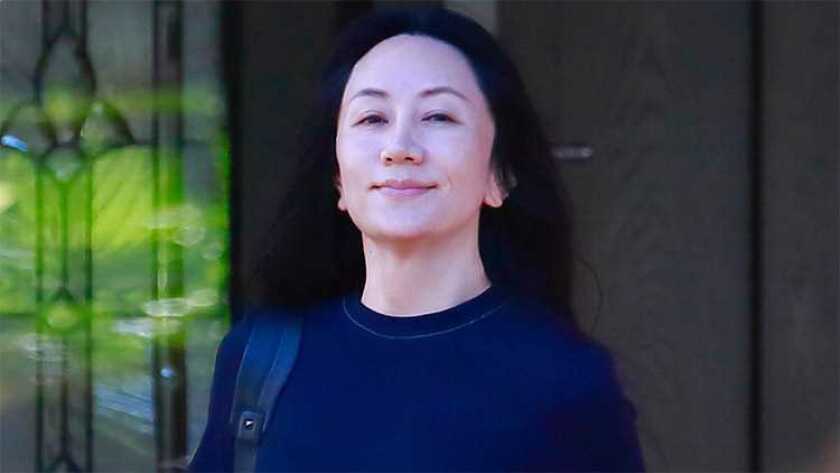Meng (pictured), the daughter of Huawei’s founder, Ren Zhengfei, always denied the charges, which alleged that she lied to the HSBC bank in Hong Kong over her relationship with Skycom, a company that was an intermediary in a contract to ship kit to Iran.
Though neither Huawei, nor Skycom, nor HSBC, nor the presumed Iranian telecoms customer are American companies, the US claimed to have authority, a case partly argued because the contract was in US dollars. The US said the deal broke US sanctions against trading with Iran, sanctions that were re-imposed in 2018 by Donald Trump’s administration after Trump cancelled the Iran nuclear deal.
A Vancouver court finished hearing the extradition case against Meng just over a month ago, though the judge, Heather Holmes, was not due to give the result until 21 October.
However, a back-door deal was always possible – right back to the days when Trump explicitly linked Meng’s case to the wider issue of US-China relations. Right through the case, people close to the case in Canada suggested that a deal might be the way through the impasse.
Chinese state media made the most of this at the weekend after Meng landed at Shenzhen airport, having been flown home from Vancouver on an Air China charter flight.
The Foreign Ministry in Beijing said that the whole case was “political persecution”. Spokeswoman Hua Chunying claimed that the case against Meng was “purely fabricated”. She said that even HSBC, which was considered the victim in the case by the US, provided evidence to prove Meng was innocent.
The details of the sudden ending of the case were that Meng reached a deferred prosecution agreement with the US Department of Justice.
Her lawyer, William W Taylor III, said: “Under the terms of this agreement, she will not be prosecuted further in the United States and the extradition proceedings in Canada will be terminated. She has not pleaded guilty and we fully expect the indictment will be dismissed with prejudice after 14 months. Now, she will be free to return home to be with her family.”
Huawei said: “Huawei will continue to defend itself against the allegations in the US District Court for the Eastern District of New York.”
Meng herself said: “After more than 1000 days of suffering, I finally returned to the motherland.”
In a comment not designed to excite sympathy in the US, she paid tribute to the Communist Party of China and thanked it for its help with her case.
However, the settlement of the case does not change the status of Huawei in US eyes: the past three years have seen the company excluded from markets in North America, Europe, developed Asia and many other parts of the world. Huawei is still on the US government’s entity list, which bans US citizens and companies, and non-US citizens in the US, from dealing with it.






